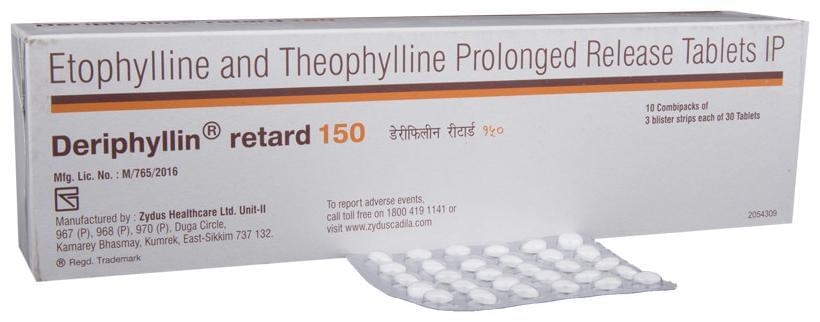Etofylline, Theophylline
Etofylline and Theophylline are a combination medication used to treat respiratory conditions such as chronic obstructive pulmonary disease (COPD) and asthma. Etofylline is a bronchodilator that works by relaxing the muscles around the airways, making it easier to breathe. Theophylline, on the other hand, is a xanthine derivative that has both bronchodilatory and anti-inflammatory effects.
The combination of Etofylline and Theophylline is effective in relieving symptoms such as shortness of breath, wheezing, and coughing. It also helps to prevent acute exacerbations of COPD and improve overall lung function. This medication is typically prescribed for patients who require long-term treatment for their respiratory condition and have not responded well to other bronchodilators or inhaled corticosteroids.
Etofylline and Theophylline can cause side effects such as nausea, vomiting, and headache. Patients should be closely monitored for any adverse reactions and dosage adjustments may be necessary to minimize these side effects. Additionally, follow the prescribed dosing schedule and not to exceed the recommended dosage, as overdose can lead to serious complications, including seizures and irregular heartbeat.

Showing 1–12 of 34 results
Showing 1–12 of 34 results




